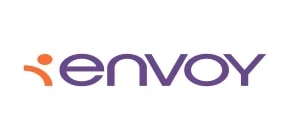UK Visas and Immigration (UKVI) has published a new 'Statement of Changes' that confirms some outstanding details of the U.K.'s new points-based immigration system. The newly published document also provides additional details on amendments to the existing rules.
Most of the changes announced will take effect from 9 am on 1st December 2020.
The current Tier 2 (General) and (ICT) routes will close on 30th November 2020. Therefore, any applications submitted on 1st December onwards will be subject to the new rules, even where a Certificate of Sponsorship has been assigned under the current system.
The Global Immigration Team at Envoy Global has broken down these brand-new updates below.
Skilled Workers Key Points
- The current cap which applies to Tier 2 (General) is being suspended, meaning there is no wider limit on how many migrants can obtain this type of permission.
- Sponsors will no longer need to undertake a Resident Labour Market Test (RLMT), in some cases this will reduce processing times by 4+ weeks.
- The criteria used to identify a 'new entrant' worker are being widened also include those sponsored in postdoctoral research positions and those working towards professional qualifications, registration or chartered status. In addition, new entrants switching from the Student route will include those were in the route at any time in the two years before they apply.
- The 12-month 'cooling-off period' and six-year maximum length of stay in the route will be removed, this means there is no restriction on when applications can be made or how long a migrant can stay.
- The £35,800 salary threshold for settlement applications will be removed in line with the new general salary threshold of £25,600 per year, or the 'going rate'.
Intra-Company Transfers
- High Earners under this route will be unified to a single salary threshold of £73,900. Workers above this salary can hold leave for up to nine years in any 10-year rolling period and are exempt from the requirement to have worked for the overseas business for 12 months prior to entering the UK.
- Removal of the cooling-off period which previously prevented a person re-entering the UK on an ICT visa for 12 months after departing. Applicants will be permitted to hold ICT leave for up to five years in any six year rolling period, or up to nine years in any 10-year period for high earners with a salary at or above £73,900 (reduced from £120,000).
- More flexible provisions will be made for individuals switching into the ICT route from another route. Applicants will still need to have been employed by the overseas business for at least 12 months, unless they are a high earner.
Global Talent
- The criteria for consideration for senior appointments will be revised to cater for emerging leaders as well as those at a more advanced stage of their career.
- The definition of the types of academic and research roles that qualify for the route will be expanded.
English Language
- Malta has now been added to the list of majority speaking English Language countries.
- Degrees from Ireland will now be accepted as proof of ability.
- Applicants that have GCSE/A Level whilst at school in the UK can rely on this for some categories.
Documents
- Allowing applicants to rely on electronic bank statements without requiring that they will be certified by the bank on each page.
COVID-19
- Changes will be made to disregard overstaying between 24th January and 31st August 2020 during the pandemic.
The content of this article is intended to provide a general guide to the subject matter. Specialist advice should be sought about your specific circumstances.

